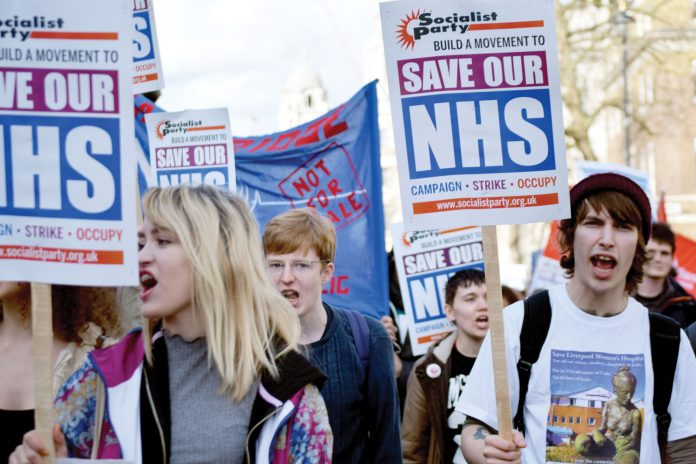NHS appointment administrator and Unison rep
In a bid to demonstrate the Tory party’s ‘dedication’ to preserving the NHS, Jeremy Hunt promised in the autumn budget to raise NHS spending by £3.3 billion over the next year, and another £3.3 billion the year after. Less than half what health bosses said is needed for the NHS to stand still.
Hunt’s announcement was rich given that it is his party that has systematically underfunded our public healthcare over the last 12 years, leading to the current situation of over seven million people on waiting lists for NHS treatment. Hunt’s announcement came only a month after NHS England reported that it foresees a £7 billion funding gap in the next year alone.
The autumn statement talked of making our public services more ‘efficient’ at a time when the NHS can barely keep up with the extra operating costs caused by double-digit inflation. The Tory party conveniently forgets that greater efficiency requires capital investment. The NHS pledged to modernise its patient records system and be paperless by 2020, but many trusts are still struggling to meaningfully enter the 21st century on the shoestring budget they have been given.
The widespread staffing shortage – more than 130,000 vacancies across the NHS reported in June 2022 – is also caused by the unwillingness of the government to dedicate enough money to pay staff a living wage, leading to waves of healthcare workers leaving for the private sector. This has paradoxically led to trusts relying on expensive private agency staff to make up the difference.
This government will blame whatever it can for our crumbling NHS, whether that is the Covid-19 pandemic or the economic pressures of inflation. But, in reality, the constant state of crisis within the NHS is the result of real-terms budget cuts, privatisation and negligent short-term thinking.







